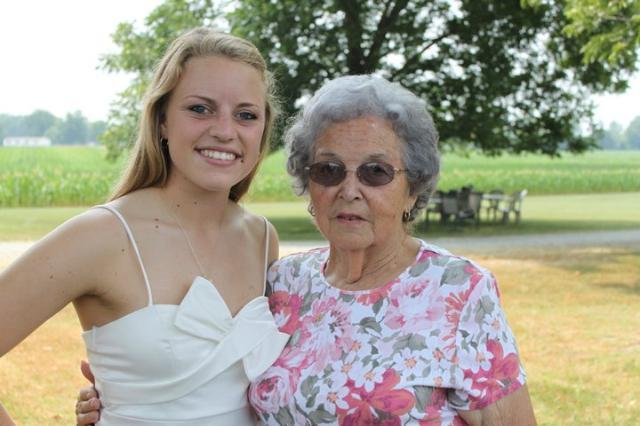
Kendall Tignor sees her future in her grandmother’s eyes.
"I look at her and I want to help people like her," says the Longwood University nursing student. "As I’m entering the nursing profession, it’s becoming clear that geriatric care is a field that needs more attention—people like my grandmother need help to communicate and understand their care."
Tignor ’15, of Tappahannock, is part of a new study at Longwood aimed at improving geriatric care. She is working with fellow nursing student Meredith Potter ’16. This summer, the students will travel to Canada to present their initial findings. With a focus on rural patients, the research will form the foundation for developing specific practices nurses can use to communicate more effectively with patients and patients’ families, leading to better outcomes.
"I want the elderly to have the resources and education to make the best health care decisions possible," she said. "I also want their caregivers to be able to make the right decision for them if they need to. That means communicating with them both as a member of their family and as a nurse. This study will give me the tools to do both better."
The number of Americans over age 65 is expected to surge to nearly 70 million by the year 2030, according to a recent Harvard University study. Driven by aging baby boomers, the aging of the U.S. population will increase pressure on geriatric health care providers. And for most patients, especially rural ones, nurses are the first point of contact.
"Nurses are on the front lines of dealing with many rural patients," said Dr. Vicki Martin, assistant professor of nursing who is co-leading the research with her colleague Natalie Pelland, assistant professor of nursing. Martin said the research is important because it will result in communicating more effectively with patients, leading to proper diagnosis; presenting information in a way that allows patients to make the best decisions for themselves; and including families to make sure they understand and honor the patient’s wishes.
For families, making decisions that affect a loved one’s health care can be extremely stressful. Tignor hopes her part in this research can foster better results. "The process we use helps family members understand what beliefs and values influenced the patient to make the decisions that they have. When caring for these patients, nurses and family members can then be confident when they are faced with these life-defining decisions."
The research consists of a series of interviews, first recording the patient’s personal values and then recording his or her health care decisions aligning with these values in a variety of situations. The data is collected and kept with the patient’s medical records for reference in case families or doctors are forced to make critical life-sustaining decisions.
"The ultimate goal of our research is to improve health care for our clients in this rural setting," said Pelland. "These conversations are difficult to have. Hopefully this research will act as a guide to our clients, and it will lead them to be able to make these conversations happen with their families and with their doctors or nurses."
Tignor is one of two Gertrude Hudson Research Scholars for Dementia Care. Through the scholarship, she has the opportunity not only to gain valuable experience in her chosen specialty but also to make the lives of geriatric patients better while she’s still in school and practice.
"It felt like this research was tailored to fit me," she said. "Research teaches you to challenge the things that you learn—you discover the truth for yourself. This is what interests me. This is what I want to do."
"I’m in love with my grandmother; she is my best friend," she continued. "I want to spend the rest of my life helping people like her."

